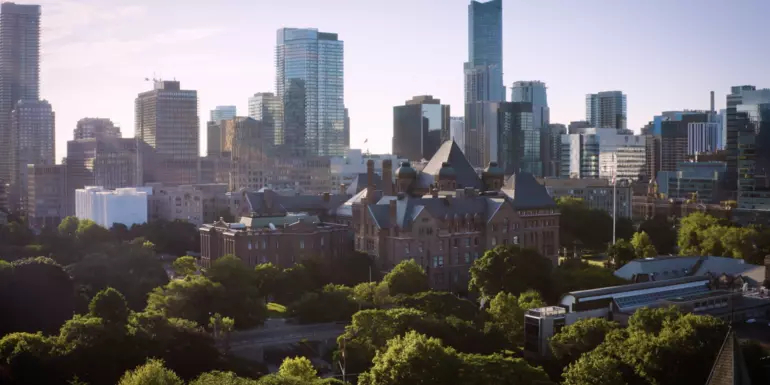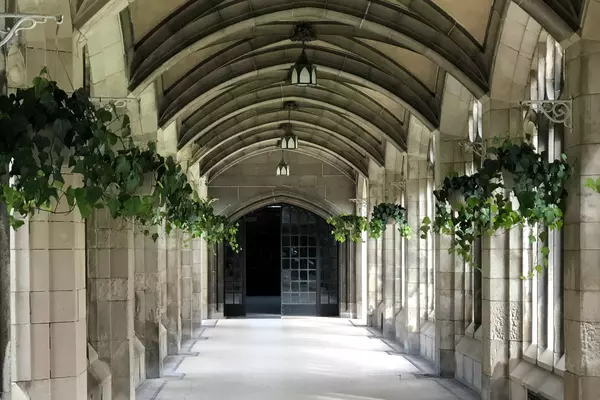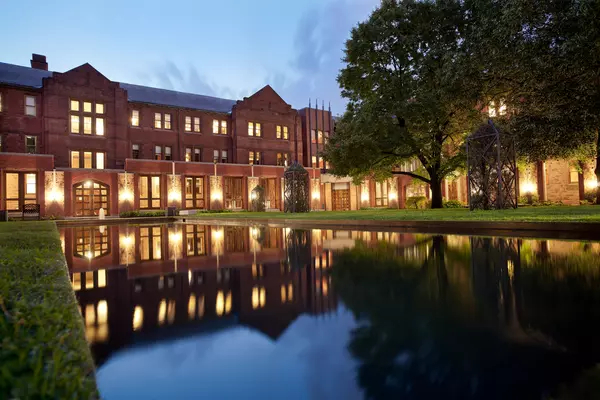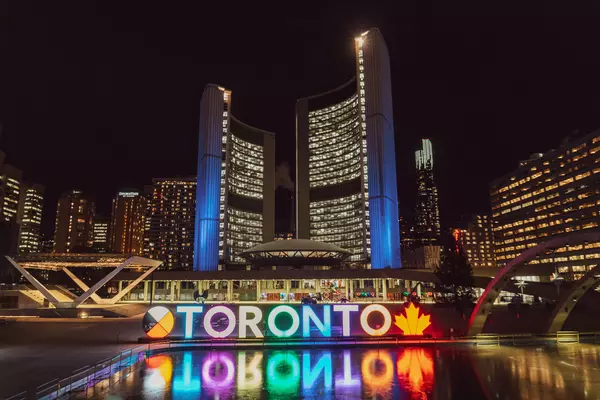Why study public policy?
The world needs leaders, and those leaders need to understand complicated social problems, deep political disagreements, challenging economic environments, and coming changes to the climate that will reshape our world. Here at the Munk School, we train professionals to deal with these and many other issues. Our faculty includes world-renowned scholars of economics, political science, sociology, history, social work and other disciplines, alongside public policy practitioners who bring a wealth of hands-on experience in the public, private, and non-profit sectors.
When you join the Master of Public Policy (MPP) program, you will learn to think critically about Canadian and global challenges. Your classes will push you to rigorously evaluate policies, to ask not just how things are done today, but how they can be done better. You will participate in a variety of student leadership initiatives, from the Beyond the Headlines podcast to the Indigenous Policy Initiative. You will learn how to negotiate in complex strategic environments, how to adapt a government to the digital age, and how to lead a team of talented colleagues.
As a two-year program, the MPP combines both academic and practical training. During your first year, you will be introduced to the core theories and tools of public policy. The following summer, the expert staff of the School will help you find an internship that matches your skills and interests. In the second year, you will bring the experience of that internship back into the classroom and into your extracurricular activities while deepening your expertise and preparing to launch your career in public policy.

The University of Toronto is an international community, and your fellow students will come from all over the world. If you choose, you will be able to study at one of our partner institutions in your second year, taking insights from scholars at Sciences Po in Paris, Central European University in Budapest and Vienna, the Lee Kuan Yew School in Singapore, King's College in London, or the Hertie School in Berlin.
Daily life at the Munk School includes lots of classes, but just as importantly, you will spend your time surrounded by a rich community of peers, alumni, faculty, fellows, staff, and visitors. On a single day, you might attend a class taught by a former high ranking civil servant in the morning, have lunch with friends studying for their Master of Global Affairs, attend a workshop on the history of Canadian multiculturalism given by a visitor in the afternoon, and network with alumni in the evening.

From the day you arrive at the Munk School for our Math-Stats Prep Course until the day you walk across the stage in Convocation Hall to receive your diploma, you will be challenged to think both big and small. You will ask how government web sites can be tweaked to better serve the public and whether the Canadian health system should be fundamentally rethought, whether a one percent increase in HST is a good idea and how to make it to a zero carbon economy. Whatever challenges you will take on in your career, we hope you prepare for them by spending some time with us here at the Munk School of Global Affairs & Public Policy
— Michael Donnelly, Director of Professional Master's Programs
A leading university
The University of Toronto is a global leader in research and teaching and Canada's top university. You will benefit from its excellent reputation, and from access to central U of T resources and services, including health and wellness, recreation, athletic facilities, social activities, clubs and other academic resources.
A leading school
The Munk School of Global Affairs & Public Policy is a leading school for research, teaching and global engagement. The School is home to expert faculty and dozens of teaching programs, centres and research labs, and will offer you the opportunity to engage with experts from around the world by hosting hundreds of public events annually.
A leading city
The Munk School is in the heart of downtown Toronto, one of the largest cities in North America and one of the most diverse cities in the world. It is near the seats of local and provincial government, private sector and non-profit organizations with a large concentration of policy leaders – and is only steps away from public transit, restaurants, shopping, parks, sporting events, festivals, cultural institutions, and much more.
Program highlights
- The University of Toronto has a reputation of global excellence. U of T is ranked #1 in Canada and #18 in the world according to Times Higher Education’s World University Rankings 2022.
- The Munk School is located in the heart of Toronto, one of the most dynamic and diverse cities in the world. It is near government, private sector and non-profit organizations with a large concentration of policy leaders.
- This two-year program allows you to achieve a strong foundation in the study of public policy and become an expert in the field.
- You will be taught by expert faculty and practitioners from a wide range of disciplines and experiences.
- You will tap into your peers’ diverse professional backgrounds and global perspectives, as well as connect to a highly engaged network of over 700+ MPP alumni worldwide.
- You will have access to a dedicated Career Services team, who work with you to develop professional skills, build your network, and connect you with employers.
- You will gain practical hands-on work experience to enhance your competitiveness in the global job market through your paid summer internship, participation in student leadership initiatives, case competitions, and much more.
- Visiting public sector leaders and renowned multidisciplinary faculty help bridge theory and real-world experience by providing contact with senior professionals in government and the broader public, private and community-based sectors.
- For the Class of 2022, 93% of graduates were employed in public policy professional positions within three months of graduation.

For the cohort entering in 2022:
- 378 applications
- 109 students accepted to the MPP program
- 27% international students
- 6 countries represented
- 72% female, 28% male
- 3.8 average final year GPA



